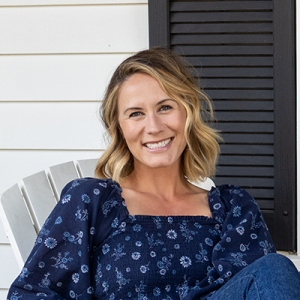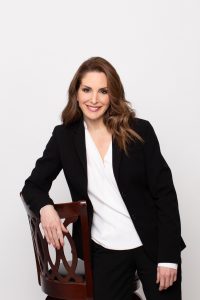MEET SUMNER BROOKS

Sumner Brooks, MPH, RDN, CEDRD, is a mom and licensed registered dietitian nutritionist based in Oregon who has spent nearly 15 years working in the field of nutrition and eating disorders. Her experience includes providing nutrition therapy for adolescents and adults, public speaking, and pursuing advanced training in trauma-informed, weight-inclusive healthcare. She is also the founder of the online training platform Eating Disorder Registered Dietitians and Professionals (EDRD Pro).
Visit EDRD Pro and connect on Instagram and LinkedIn.
IN THIS PODCAST
- The madness of desiring constant weight loss
- Critique what you see
- Navigating conflicting information
- The definition of “health” must include mental health
The madness of desiring constant weight loss
With constant social media influence present in everybody’s lives, everyone comparing themselves to one another, and the standard set by global influences like fashion, film, and media – currently, there is a constant desire to “lose weight”. Realize this: it is not natural to just want to lose weight. There should be no societal pressure just to lose a couple of pounds, and the fact that there is doesn’t make it okay.This focus on “weight loss” as, like, something that is needed [at any time] … what are we doing? (Dr. Castagnini)Any type of medication will impact or change your body. If you are taking diabetic medication to lose weight but you don’t have diabetes, how is this affecting your body? Let alone that, how is the constant presence that you allow into your mind to always seek weight loss impacting your mental health?
Critique what you see
These industries design their marketing and their products not with your well-being in mind. They are more interested in your money than in your health, and they will often do anything to convince you that they can sell you a quick fix. Be mindful of what you see, and what you feel yourself drawn to purchase. Why are you considering this weight loss product? Who has made you think you need to lose, gain, or shift your weight in any capacity?We know what happens physiologically – and psychologically – when people are trying to intentionally lose weight, whether that’s through pharmaceuticals or behavioral intervention, or bariatric surgery. We actually have a lot of data to more or less prove that these are harmful recommendations, and they are in direct contradiction to what the American Academy of Pediatrics put out six or seven years ago. (Sumner Brooks)Be aware of the thoughts in your mind, where they come from, and whether they are yours or come from the words, messaging, or influence of someone else.
Navigating conflicting information
Unfortunately, all of this conflicting information is not only difficult for the public and parents to handle, but also for other concerned medical practitioners like therapists, pediatricians, and nutritionists.[For a person] that doesn’t have advanced training in these areas, it’s very confusing because the science is biased and contradictory. Even the American Academy of Pediatric guidelines contradicts itself by saying, “Weight stigma is harmful and problematic”, [but] their entire paper is reinforcing weight stigma. (Sumner Brooks)Cross-reference doctors with outside sources if you are unsure about whether some medical advice you received was necessary or not. You have the right and the capacity to ask for a second opinion.
The definition of “health” must include mental health
Every time you think of “health and well-being” for your kids, it has to include mental health. Health is not just about physical wellness; it is also psychological and emotional. So, if something is meant to be good for the body but harms the mind? It’s not really good for your kid.- How do you talk about food?
- How do you talk about bodies?
- How do you discuss body image and body confidence?
USEFUL LINKS
- BOOK | Sumner Brooks & Amee Severson – How to Raise an Intuitive Eater: Raising the Next Generation with Food and Body Confidence
- BARIATRIC SURGERY WITH MARIANNE MILLER | EP 138
- Visit speakpipe.com/behindthebite and submit your comment via voice message!
- Sign up for the free Behind The Bite Course
- Practice of the Practice Network
- Email Dr. Cristina Castagnini: info@behindthebitepodcast.com
MEET DR. CRISTINA CASTAGNINI
 I am a licensed Psychologist and Certified Eating Disorder Specialist.
While I may have over 20 years of clinical experience, what I also have is the experience of having been a patient who had an eating disorder as well.
One thing that I never had during all of my treatment was someone who could look me in the eye and honestly say to me "hey, I've been there. I understand".
Going through treatment for an eating disorder is one of the hardest and scariest things to do. I remember being asked to do things that scared me. Things I now know ultimately helped me to get better. But, at the time, I had serious doubts and fears about it.
If even one of my providers had been able to tell me "I know it's scary, but I had to go through that part too. Here's what will probably happen...." then perhaps I would not have gone in and out of treatment so many times.
My own experience ultimately led me to specialize in treating eating disorders. I wanted to be the therapist I never had; the one who "got it".
I will be giving you my perspective and information as an expert and clinician who has been treating patients for over 2 decades.
But don't just take my word for it...keep listening to hear the truly informative insights and knowledge guest experts have to share.
I am so happy you are here!
I am a licensed Psychologist and Certified Eating Disorder Specialist.
While I may have over 20 years of clinical experience, what I also have is the experience of having been a patient who had an eating disorder as well.
One thing that I never had during all of my treatment was someone who could look me in the eye and honestly say to me "hey, I've been there. I understand".
Going through treatment for an eating disorder is one of the hardest and scariest things to do. I remember being asked to do things that scared me. Things I now know ultimately helped me to get better. But, at the time, I had serious doubts and fears about it.
If even one of my providers had been able to tell me "I know it's scary, but I had to go through that part too. Here's what will probably happen...." then perhaps I would not have gone in and out of treatment so many times.
My own experience ultimately led me to specialize in treating eating disorders. I wanted to be the therapist I never had; the one who "got it".
I will be giving you my perspective and information as an expert and clinician who has been treating patients for over 2 decades.
But don't just take my word for it...keep listening to hear the truly informative insights and knowledge guest experts have to share.
I am so happy you are here!


Comments